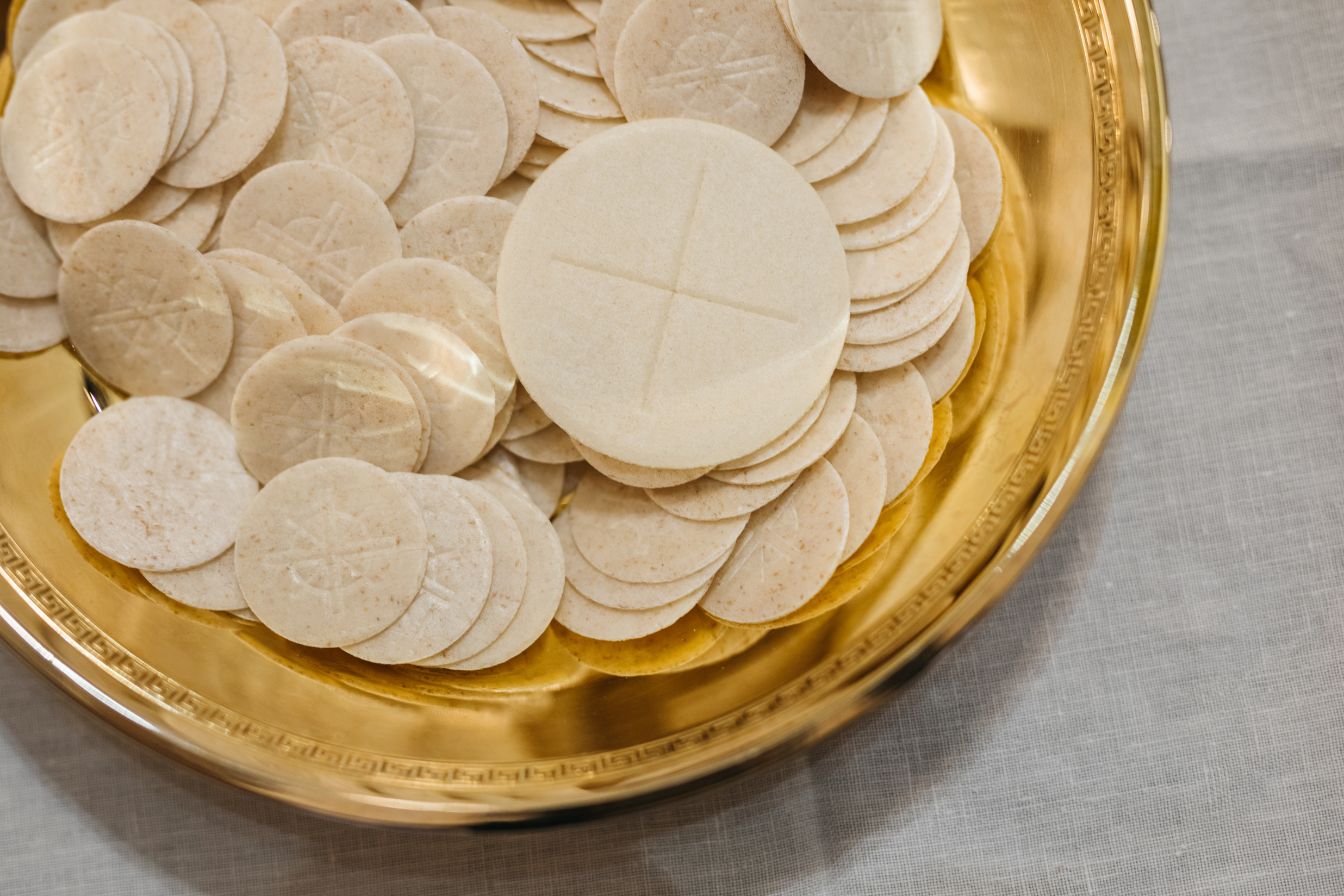Photo by Diocese of Spokane on Unsplash
On this sacred day of Corpus Christi, we come together as faithful Catholics to reflect upon the profound mystery and significance of the Holy Eucharist. Corpus Christi, meaning “Body of Christ” in Latin, is a powerful reminder of Christ’s real presence among us in the form of bread and wine. It is a feast that invites us to deepen our understanding of the Eucharist’s meaning and relevance in our world today.
The Eucharist is the heart of our Catholic faith, the source and summit of our spiritual nourishment. It is the sacrament through which Christ continues to offer Himself to us in the most intimate way possible. As Jesus Himself proclaimed, “I am the living bread that came down from heaven. Whoever eats of this bread will live forever, and the bread that I will give for the life of the world is my flesh” (John 6:51).
In the Eucharist, we encounter the real presence of Christ, body, blood, soul, and divinity. Through the sacred words of the priest, the bread and wine are transformed into the very body and blood of Jesus Christ. This transformation, known as transubstantiation, is a profound mystery that calls us to contemplate the depth of God’s love and sacrifice for us.
Corpus Christi in the early Church
Here are a few quotes from the early Church Fathers and Doctors that highlight their understanding and reverence for the Holy Eucharist:
- St. Ignatius of Antioch (c. 35-107 AD): “Take note of those who hold heterodox opinions on the grace of Jesus Christ, which has come to us, and see how contrary their opinions are to the mind of God… They abstain from the Eucharist and from prayer because they do not confess that the Eucharist is the flesh of our Savior Jesus Christ” (Letter to the Smyrnaeans).
- St. Justin Martyr (c. 100-165 AD): “We call this food Eucharist, and no one else is permitted to partake of it, except one who believes our teaching to be true and who has been washed in the washing that is for the remission of sins and for regeneration and is thereby living as Christ enjoined” (First Apology).
- St. Augustine of Hippo (354-430 AD): “I promised you [newly baptized], who have now been baptized, a sermon in which I would explain the sacrament of the Lord’s Table… That bread which you see on the altar, having been sanctified by the word of God, is the body of Christ. That chalice, or rather, what is in that chalice, having been sanctified by the word of God, is the blood of Christ” (Sermon 227).
- St. John Chrysostom (347-407 AD): “When you see the Lord immolated and lying upon the altar, and the priest bent over that sacrifice praying, and all the people empurpled by that precious blood, can you think that you are still among men and on earth? Or are you not lifted up to heaven?” (Homilies on the Gospel of Matthew).
- St. Cyril of Jerusalem (315-386 AD): “Do not, therefore, regard the bread and wine as simply that, for they are, according to the Master’s declaration, the body and blood of Christ. Even though the senses suggest to you the other, let faith make you firm. Do not judge in this matter by taste, but be fully assured by the faith” (Catechetical Lectures).
These quotes from the early Church Fathers and Doctors demonstrate their firm belief in the real presence of Christ in the Eucharist and emphasize its significance as the central sacrament of our faith. They provide a strong foundation for our understanding and reverence for the Holy Eucharist today.
Corpus Christi today
Corpus Christi is not only a celebration of Christ’s presence in the Eucharist but also a reminder of our call to live as His disciples in the world. As we partake in the Eucharistic meal, we are united with Christ and with one another as the body of Christ, the Church. It is in this unity that we find the strength and grace to carry out our mission of love, justice, and mercy in the world.
In a world marked by division, materialism, and spiritual emptiness, the feast of Corpus Christi holds immense relevance. It reminds us of the ultimate reality that we are not alone in our journey. The Eucharist offers us the tangible presence of Christ, who accompanies us through the ups and downs of life, offering solace, healing, and transformation.
Furthermore, Corpus Christi challenges us to recognize the dignity and worth of every human person. Just as Christ humbled Himself to become present in the form of bread and wine, we are called to see Christ in our brothers and sisters, especially the marginalized, the poor, and the vulnerable. The Eucharist compels us to respond with compassion, generosity, and a commitment to building a more just and compassionate society.
As Catholic apologists, we have the privilege and responsibility to share the profound truth of the Eucharist with the world. We are called to explain, defend, and invite others to encounter the real presence of Christ. Our task is to address misconceptions, offer clarity, and provide a compelling witness to the transformative power of the Eucharist in our lives.
Corpus Christi reminds us of the immense gift and mystery of the Holy Eucharist. It calls us to embrace the presence of Christ in our midst and to live as His disciples in the world. May this feast deepen our love for the Eucharist and inspire us to share its beauty and relevance with all those we encounter. Let us go forth, nourished by the Body and Blood of Christ, to be the living signs of His love and mercy in our world today. Amen.

